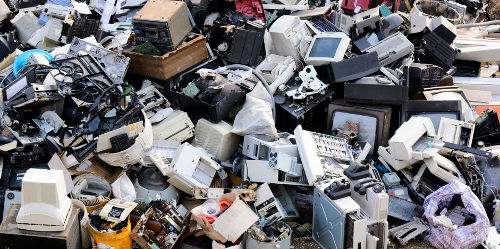Desktop computing isn't going anywhere
Desktop computing isn't going anywhere

Your desktop PC isn't for the scrap heap yet.
If you listen to some IT experts and pay attention to sales figures then you may be under the impression that the days of the desktop PC are numbered.
After all, the fourth quarter of 2012 saw a drop in online searches from desktop computers (down 4% year-on-year) for the first time since the Macquarie Group began tracking the data back in 2006. There was also a 4.9% fall in worldwide PC shipments compared with the final quarter of 2011.
Both of these suggest a worrying trend for the PC industry - we are buying fewer PCs and using them less.
PCs are living longer
The decline in PC shipments can be looked at in two ways. Yes, we are buying PCs at a slower rate. But you have to remember there have been big improvements in PC hardware and software - and that's affected how often we upgrade.
Ten years ago you would upgrade your desktop computer every 3 - 4 years. However, the durability of modern systems has extended this to more like 5 - 6 years. A four-year-old computer is perfectly capable of running modern software.
The inevitable consequence of upgrading less frequently is that fewer PCs will be sold. Although that might frustrate PC manufacturers, it doesn't mean we are abandoning our desktops. The assumption that the rise of mobile devices has come at the expense of desktop PCs may not be true.
In fact, when you compare the upgrade cycles of smart phones (typically 1 - 2 years) and desktop PCs (5 - 6 years) then the figures make sense.
In 2012 700 million smart phones were sold worldwide versus 350 million PCs. Considering the respective life spans, it follows that people would purchase two phones for every one PC.
Businesses still rely on PCs
|
Despite the proliferation of mobile devices, most companies still rely on desktop PCs, laptop computers or thin clients.
Businesses want their staff to be able to get on with their work productively without having to adapt to a new device, and were a firm to convert wholesale to mobile devices then there would be a significant learning curve for employees.
Bring your own device (BYOD) is gaining traction within forward-thinking organisations, but there is a long way to go before it is standard.
In addition, cloud computing has allowed companies to invest in thin client computers, a very cost-effective option that is significantly cheaper than tablet devices.
The industry is opening, not narrowing
Ultimately it is not that the computer industry is closing in around the desktop PC. Rather, it is opening up to incorporate a wider range of tech, and so it follows that the PC's market share will decrease.
However, just as the oven wasn't replaced by the microwave and the car wasn't replaced by the scooter, the humble desktop computer will continue to play a major role in our personal and professional lives for many years to come.
A guest post from John Rooney on behalf of GCC Innova - a team of experienced, professional IT specialists working for blue-chip clients in the heart of England and the South West.




Comments
Add a comment